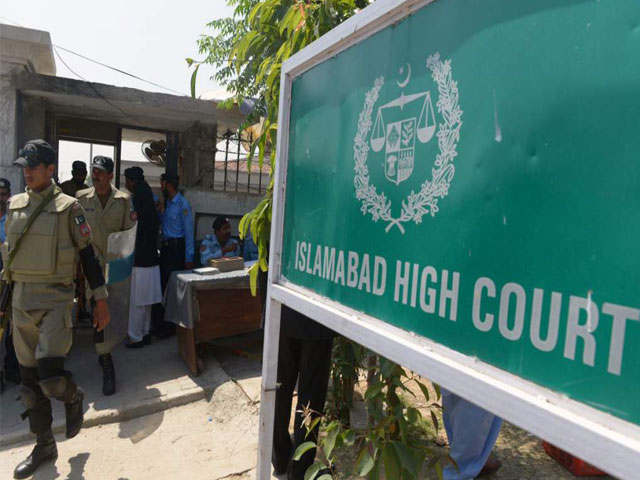
The Islamabad High Court (IHC) on Saturday expressed optimism by dismissing a petition challenging the constitutionality of the Parliamentary Committee on Judges Appointment saying there is no reason for the court not to repose confidence and trust in the panel’s proceedings.
IHC Chief Justice Athar Minallah while dismissing the petition in limine noted that the court was confident that the parliamentary committee would fulfill its constitutional obligation in ensuring the appointment of professionally competent, upright and independent minded persons as judges of IHC.
The parliamentary panel had summoned Babar Sattar and Tariq Jahangiri, both nominees for the post of additional judge of the IHC.
The Judicial Commission of Pakistan (JCP) had earlier recommended both names for the post.
While exercising restraint, the capital's top judge said that the “Court is not inclined to put its constitutional jurisdiction vested under Article 199 of the Constitution into motion and, therefore, the petition is accordingly dismissed in limine.”
Petitioner, Iftikhar Ahmad Bashir Advocagte, through his counsels Barrister Sajeel Sheryar Swati and Hasan Murtaza Mann made federation through secretaries of Ministry of Law and Justice and Ministry of Parliamentary Affairs respondents in the case.
The petitioner challenged the vires of rules 3 and 5 of the Parliamentary Committee on Judges Appointment in the Superior Courts Rules, 2010, arguing that a nominee for appointment as a judge of the high court cannot be invited or summoned by the parliamentary panel for an interview.
In the order, IHC chief justice stated the court would not be justified in assuming that by inviting the two nominated candidates, the parliamentary committee had exceeded its jurisdiction or violated the principles and law enunciated by the Supreme Court in the several judgments.
“As chosen representatives of the people, the members of the Parliamentary Committee are in a better position to appreciate the importance of having impartial, fair, competent, upright and independent minded judges on the Benches,” Justice Minallah noted.
“There is no reason to doubt that the Parliamentary Committee would not strive to screen and investigate the candidates with the object of ensuring that those who are approved are as well qualified as possible,” he stated.
The committee consists of eight members who are the chosen representations of the people of Pakistan, four each from the Senate and the National Assembly respectively.
“Their role cannot be undermined or discredited in any manner whatsoever,” the order read.
In the order, Justice Minallah maintained that the parliamentary committee is an important forum constituted under the Constitution; it has a pivotal role in ensuring the appointment of such a person as judge of the high court who has the attributes of administering justice fairly, justly and impartially without fear and favour.
“The Judicial Commission and the Parliamentary Committee are the two pivotal forums for ensuring the selection of the very best as judges of the superior courts,” he stated.
Though the judge dismissed the petition in limine but he took the opportunity to express that it was of utmost importance to appoint qualified, professional and independent minded persons as a judge because of the significant impact of the judicial branch of the state on the lives of the citizens and the security, prosperity and well-being of a nation.
The court order also sheds light on the role of the judges, stating that “Judges are impartial arbiters of disputes” and they “guard constitutionally guaranteed rights and uphold the supremacy of the Constitution and rule of law.”
Sattar holds a Master of Law (LLM) degree from the Harvard School of Law and is also a writer, columnist and analyst.
Jahangiri, a former advocate general for Islamabad, is an expert in criminal, constitutional and civil laws. He was elected as president of the IHC Bar Association in 2016 and previously was president of the Islamabad District Bar Association.





1730959638-0/trump-(19)1730959638-0-165x106.webp)

1732436825-0/BeFunk_§_]__-(47)1732436825-0.jpg)


1732432596-0/BeFunk_§_]__-(45)1732432596-0.jpg)
1732438009-0/BeFunk_§_]__-(48)1732438009-0.jpg)






COMMENTS
Comments are moderated and generally will be posted if they are on-topic and not abusive.
For more information, please see our Comments FAQ